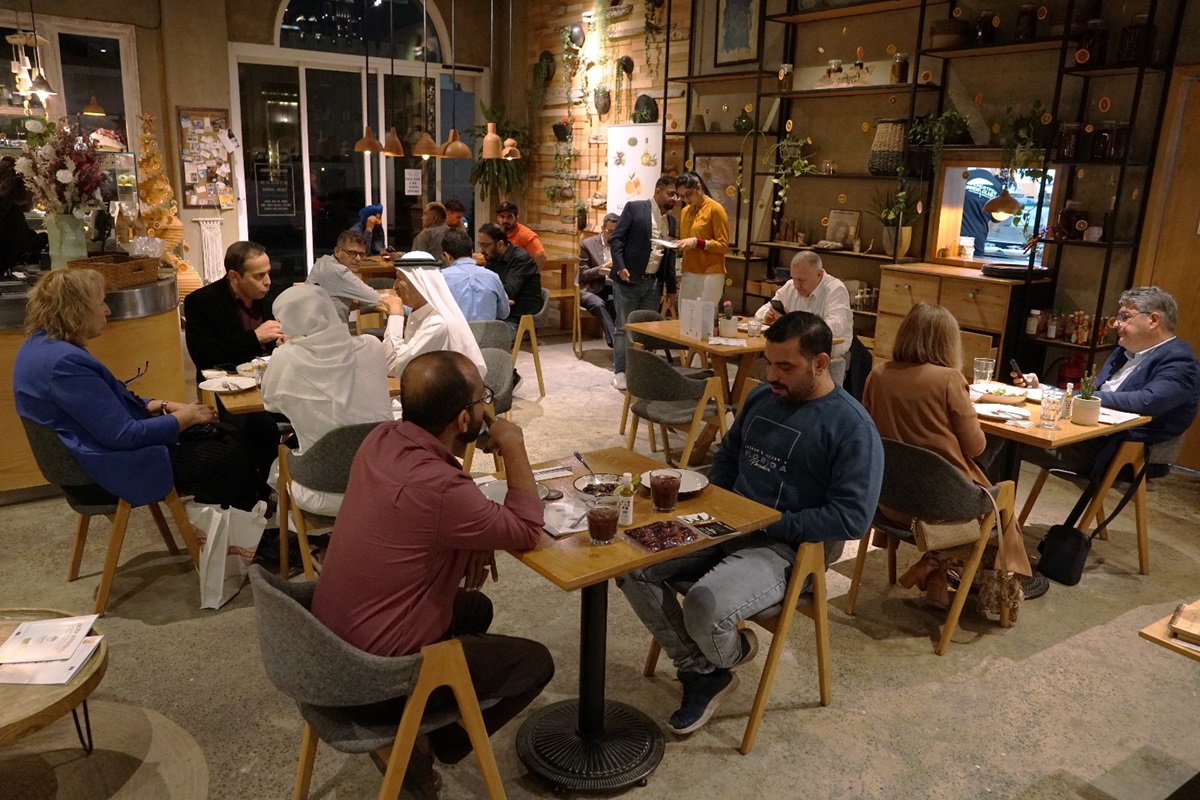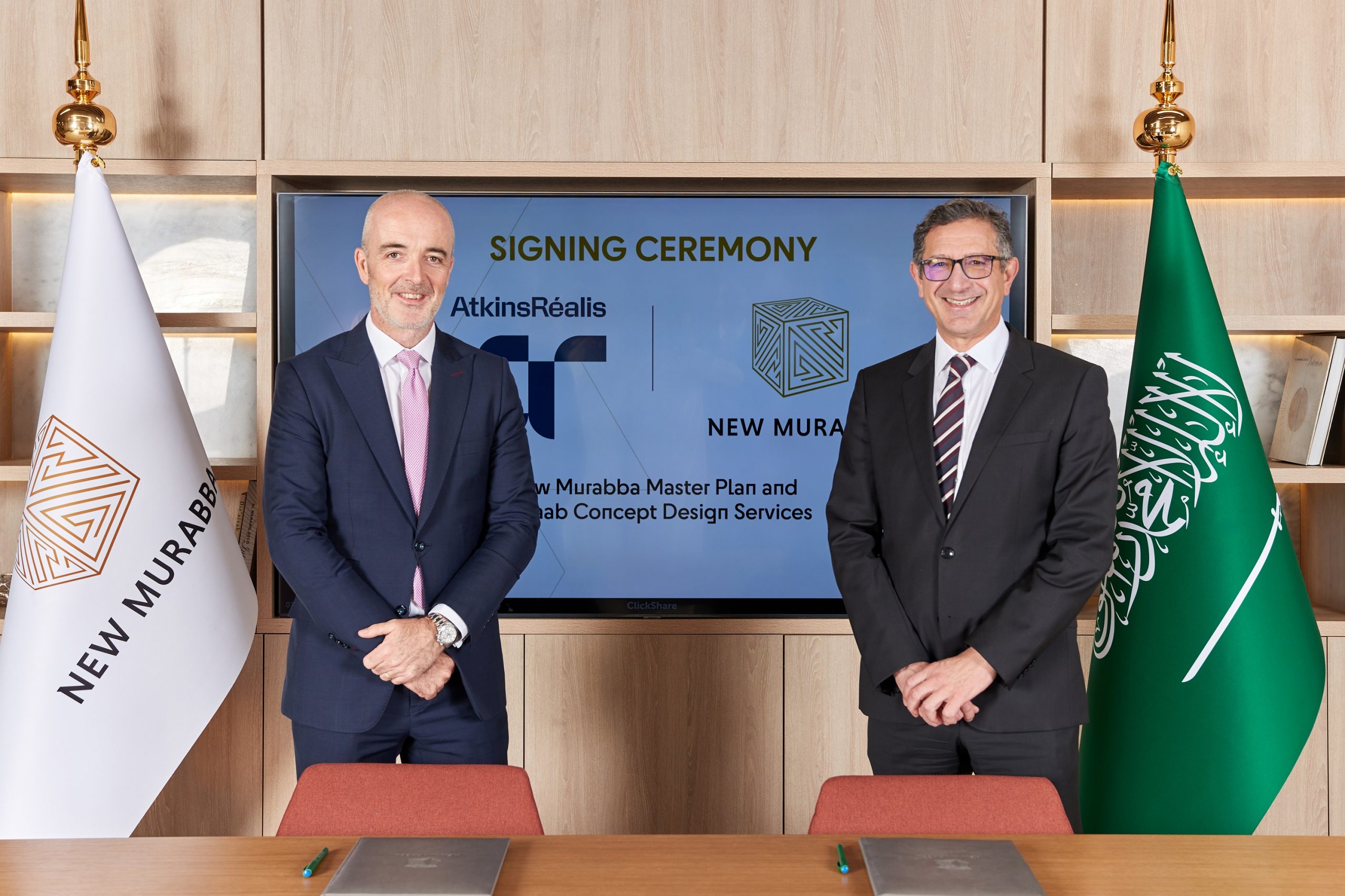The New Murabba Development Company (NMDC), a fully-owned subsidiary of the Public Investment Fund (PIF), Saudi Arabia,
has appointed AtkinsRéalis (TSX: ATRL), a fully integrated professional services and project management company with offices around the world, to support the design of the New Murabba masterplan, the world’s largest modern downtown in Riyadh, and the Mukaab, an immersive destination that will revolutionize the way in which people experience hospitality, retail and
leisure. A signing ceremony, attended by Sabah Barakat, Acting CEO, New Murabba Development Company, and Campbell Gray, CEO of AtkinsRéalis, Middle East and Africa, was held to mark this milestone and celebrate the ongoing support to deliver Riyadh’s new iconic destination. Sabah Barakat, Acting CEO, New Murabba Development Company, commented: “We are proud
to recognize the important role that AtkinsRéalis has played so far in the translation of the incredible vision of this project into the design of the masterplan and the iconic Mukaab building. We’re also pleased to recognize the ongoing involvement of AtkinsRéalis in this project through a series of recent contract awards relating to the further detailing and definition
of the overall New Murabba masterplan and infrastructure design, as well as the concept design of the iconic Mukaab building.”
“The New Murabba project aligns with Saudi Arabia’s national vision aimed at developing the infrastructure, enabling the private sector, and creating job opportunities for local talent,“ added Campbell Gray, CEO of AtkinsRéalis, Middle East and Africa. “We are proud to work with NMDC on this ambitious project and bring our global engineering excellence and design
expertise, underpinned by cutting-edge technologies and sustainable solutions, to deliver a long- lasting legacy for the Kingdom and its future generations.” After successfully winning the international architectural and master planning competition for Riyadh’s new icon, AtkinsRéalis will provide its world class advisory, architecture, masterplanning and engineering services to deliver this groundbreaking project, a cornerstone to the visionary reinvention of the Kingdom’s capital city. Contributing to the city’s future development in line with the Saudi Vision 2030, the New Murabba masterplan is inspired by Riyadh’s original balance with nature, and its design is focused on a data-driven approach to sustainability, user convenience, reduction in the need for transport, walkability and people- centric design of its public realm. “Synonymous with designing iconic landmarks in the Middle East, AtkinsRéalis has established a stellar reputation for delivering people-centric destinations combining the region’s cultural identity with modern urban standards,“ said Matthew Tribe, Managing Director, Planning, Design, and Engineering at AtkinsRéalis, Middle East and Africa. “This project win is a testament to our innovative architectural design approach set to redefine downtowns of the future living experience not only in Riyadh but also globally.”
AtkinsRéalis’s competition-winning scheme is inspired by Najdi Architecture, with a focus on creating a futuristic landmark with deep contextual roots that blends Riyadh’s cultural heritage with its future ambitions. The Mukaab, which means cube in Arabic, will be the world’s largest immersive destination providing innovative experiences driven by digital and virtual technology.
The Mukaab’s exterior envelop shrouds an internal skyscraper, which will be one of the largest built structures in the world’s history, standing 400m high, 400m wide, and 400m long. The design of the Mukaab will also include first-of-its-kind hospitality, F&B and retail facilities.


 World2 years ago
World2 years ago
 World2 years ago
World2 years ago
 Entertainment7 years ago
Entertainment7 years ago
 World7 years ago
World7 years ago
 Entertainment7 years ago
Entertainment7 years ago





